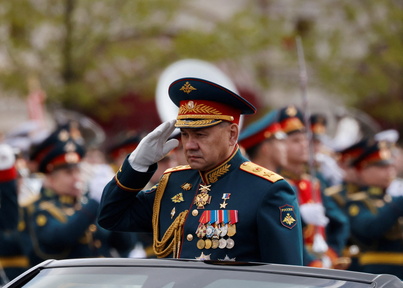On an insider view – Anonymous in LRB:
“The ‘special military operation’ (the law forbids calling it anything else) got off to a bad start and has slogged brutally along for more than a year with no end in sight. Yet many people in Russia support it. While a lot of men fled the country when mobilisation was ordered, others willingly reported to draft offices, boarded the buses and headed to the front, seen off by their women and children. The federal government at first promised 300,000 rubles to whoever enlisted, then rescinded the offer and instructed regional governments to support the families instead.
Governors provided what they could: cash and cabbages, flour and firewood. Packs of frozen dumplings. In Tuva, each family of a mobilised man was provided with one live sheep. Friends and family were asked to get the men ready for the front. Religious organisations, volunteer groups and members of the public were encouraged to help out. And they did, chipping in to scrounge up sleeping bags and combat boots, first-aid kits and bullet-proof vests, underwear and socks.
Some of the mobilised soon found themselves locked in at training camps without enough food, reliant on their families to feed them through the chainlink fences. (‘Like animals at a zoo!’ laughed the Ukrainian bloggers.)”
(…)
“The ‘special military operation’ is a bloody fiasco – that much is obvious. Terms such as ‘the Bakhmut meat grinder’ are now commonplace. And yet it’s a fiasco that many people support. Anglo-American commentators turn to totalitarian clichés to explain this curious fact: they write that Russians are brainwashed, depoliticised and terrified of police repression. Historians trace the roots of this situation in the longue durée. Ekaterina Pravilova, a historian of Imperial Russia, notes that today as in the 19th century those who are allowed to speak on behalf of society are closely linked to the state, and that
most of the millions of people who support Putin and his plans of imperial revival ... have been raised on state propaganda and are unwilling to question the veracity of the myths that it produces. They are excited about military victories because different ideas have never been inculcated in their minds, neither by the schools nor by the Orthodox Church. Many of them live in misery and abandonment, and they seek emotional comfort not in kindness and compassion but in an illusionary victory in a ‘special operation’.
But such accounts cannot explain why people support the war even as they openly criticise its leadership, methods and goals. Online and in daily life, in formal state petitions and in viral streams, people in Russia complain about their political and military leaders’ criminally incompetent actions and policies. They denounce the military’s infrastructure, tactics and strategies. The most patriotic speak the most critically.”
(…)
“And when they cross certain indefinite lines, when they know too much or get in the way, such public figures may be removed by their own extralegal methods.
This could well be what happened to Maxim Fomin (aka Vladlen Tatarsky), best known for vlogging from the Kremlin’s ceremony to celebrate annexing Ukrainian land: ‘We will hold victory over everyone. We will kill everyone. We will rob everyone who should be robbed. Everything’s going to be just as we like it.’ On 2 April, Fomin was killed during a public event at a restaurant belonging to Yevgeny Prigozhin, the leader of the Wagner Group. He accepted a golden bust of himself from a woman he had previously met at Listva, a Girkin-affiliated bookshop. The statue turned out to be a bomb, which exploded just as Fomin bent over it. By the following morning, a suspect had been apprehended. Newspapers disclosed the entire story of her perfect crime, blow by blow – almost as if the Investigative Committee had had a draft statement ready. Fomin got a hero’s funeral. Russian media blamed Ukraine and called for retaliation.
This is the riddle: that people support the ‘special military operation’ even while they criticise it. They criticise it because they support it, and the more they criticise the more they support. When asked why it’s necessary, supporters typically bring up two reasons. The first is that the motherland is in danger. Talk of Nato’s encroachment slides easily into the themes of linguistic chauvinism and culture war: the motherland is an amorphous concept, more about language and social relations than national borders and laws.
The second reason is that we can’t let our guys down, we’re in this together.”
Read the article here.
“The most patriotic speak the most critically,” but as we can see not for reasons many people in the West would applaud.
Of course, an enemy from the outside always unites the fragmented people inside. Take a look at Israel, the US, Iran et cetera.
And the urge to stand by our soldiers, is a common opinion. I remember well that we were urged to stand by the American soldiers in Iraq, even when you couldn’t support the war itself.
An understandable but difficult position. Perhaps in the case you should support desertion?
And here, the Russians, most Russians support the war, apparently – although this is hard to say under a dictatorship – they just believe that the war is not fought rightly end effectively enough. (Putin appears to respect most if not all red lines.)
But then again, what’s opinion, when certain opinions will be met with extralegal methods?
